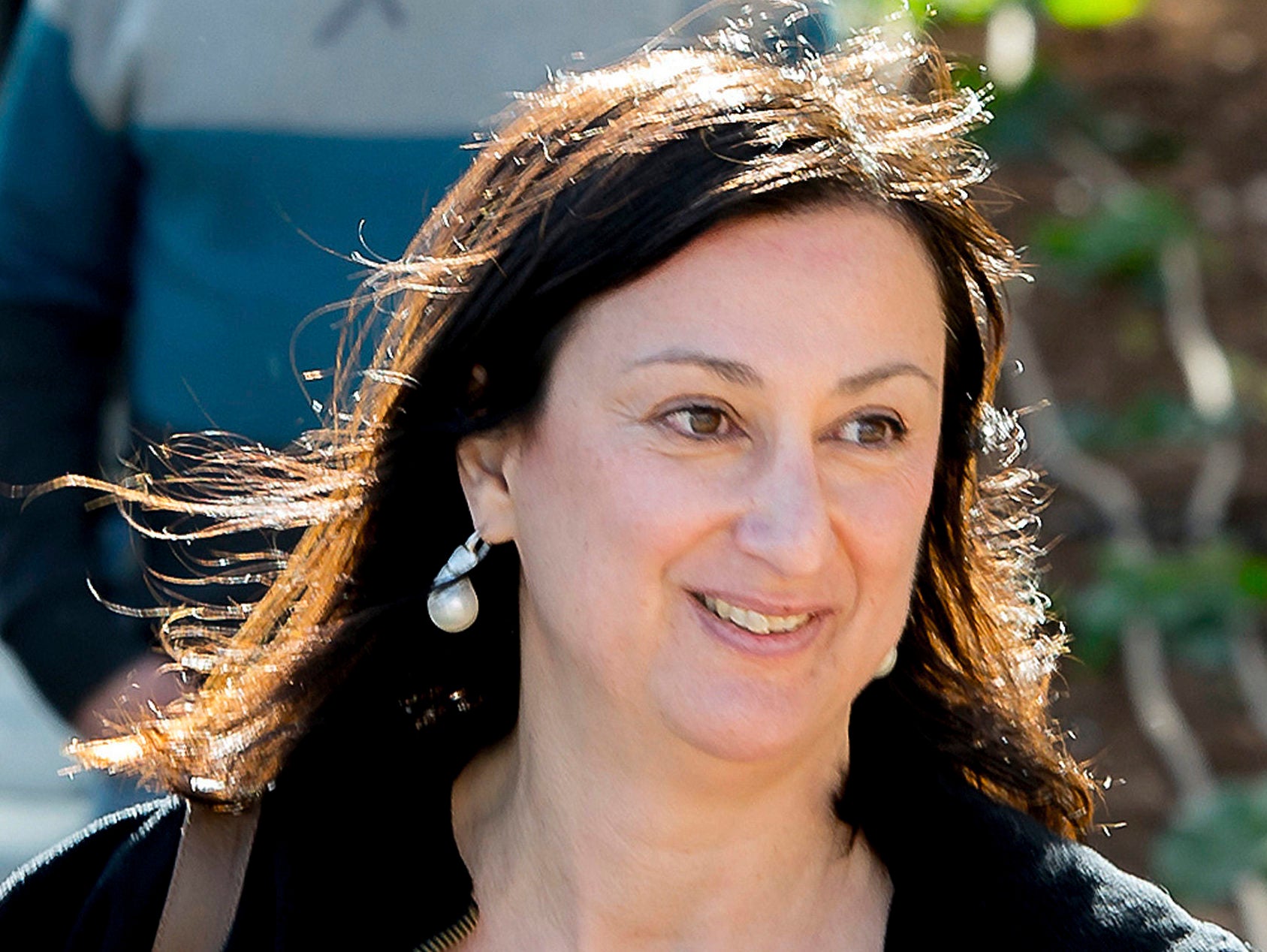
The family of investigative journalist Daphne Caruana Galizia has warned it is likely to take legal action unless the Maltese Government launches a public inquiry into her murder.
Caruana Galizia, 53, was killed when a bomb destroyed her car as she drove away from her home in the town of Mosta on 16 October last year. She had been looking into high-level money-laundering and corruption in Malta.
Her family is demanding a public inquiry to determine whether her assassination could have been avoided.
Lawyers for the family say the Maltese government is obliged to conduct an inquiry under Article Two of the European Convention on Human Rights.
Maltese Prime Minister Joseph Muscat’s administration could face legal action in Malta’s Constitutional Court, or in the European Court of Human Rights at Strasbourg, the island republic’s Attorney General Dr Peter Grech, has been told.
The family’s demands are also being supported by Malta’s centre-left Partit Demokratiku, which at the weekend invited all MPs of goodwill to work together in delivering a truly independent public inquiry into the circumstances surrounding the assassination.
Lawyers have said Malta has already failed to comply with obligations in relation to its investigation into Caruana Galizia’s death.
On 5 October, it points out, Malta’s Constitutional Court held that the active involvement in the probe into Caruana Galizia’s death of deputy commissioner Silvio Valletta – a senior police officer who had been a subject of her journalistic inquiries – was a breach of Article Two.
“A grieving family should not be expected to engage in litigation in order to ensure the state’s compliance with Article Two, or to respond to questions from an Attorney General as to the nature of that duty in circumstances where the urgent need for a public inquiry is obvious,” the opinion said.
“In summary, it is our opinion that Malta is acting unlawfully in not instituting a public inquiry into the circumstances of Caruana Galizia’s assassination.
“If it persists in this illegality, we advise that court proceedings are issued in Malta to compel the Prime Minister’s compliance with Article Two ECHR and if necessary thereafter in the European Court of Human Rights (ECtHR) in Strasbourg.”
A legal opinion document pointed out that the central question to be answered by a public inquiry was whether Maltese authorities knew or ought to have known of, or actually posed, a real and immediate risk to Caruana Galizia’s life.
An Article Two compliant investigation was “urgently required”, it said.
“Deferral of the initiation of a public inquiry is liable to jeopardise and frustrate the inquiry, as crucial evidence concerning the wider circumstances of Ms Caruana Galizia’s assassination may be lost as a result of the delay,” the document said.
“By way of example, the terms of the inquiry will need to include a consideration of any state neglect or complicity in the assassination.
“A consideration of that issue will in turn require the preservation by the chair of all official documentation relating to state authorities’ interaction with Ms Caruana Galizia and with any third parties who may have posed a risk to her life.
“It is essential to engender public confidence in this process that this preservation begins without further delay, including in order to quell suspicion that political interference may jeopardise the chain of evidence.”
It added: “Malta’s legal system does not provide for inquest proceedings and it has no independent organisations outside of the criminal context with responsibility for investigating any state complicity or neglect in a death engaging Article Two.
“As raised in our previous opinions, the Magistrate’s investigation can only lead to a criminal prosecution conducted by the police.
“This means that the police are ultimately investigating themselves and that no one in Malta is investigating a central question necessary for Article Two compliance: could Ms Caruana Galizia’s assassination have been prevented and what lessons should be learned from the loss of her life.”
The fact that, more than a year after Caruana Galizia’s assassination neither the police nor the Magistrate had interviewed any politician or government official about it underlined the urgent need for the initiation of a public inquiry so that any and all relevant evidence regarding any state complicity or neglect was preserved, the document added.
Picture: AP Photo/Jon Borg
Email pged@pressgazette.co.uk to point out mistakes, provide story tips or send in a letter for publication on our "Letters Page" blog







